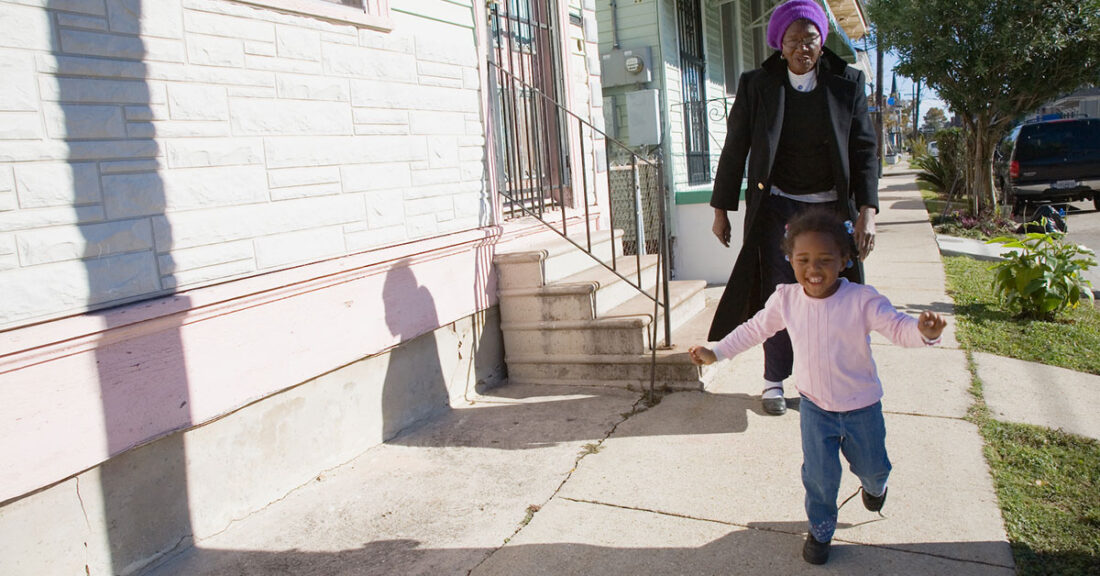Emerging Scholars Explore Role of Neighborhood Norms in Kids’ Activities

Photo credit: Susie Fitzhugh for the Casey Foundation
The Annie E. Casey Foundation’s Emerging Scholars Initiative equipped three early-career scholars with data from the Making Connections Survey. Their task? Look for connections between the way parents in low-income communities perceive their neighborhoods and their children’s participation in educational and extracurricular programs.
Each scholar worked independently — and came to the same basic conclusion: informal social controls play a large role in how families make decisions. The Foundation funded the work as part of an effort to enhance the research trajectory of scholars of color, who were chosen through a competitive application process.
“Interestingly, all three papers stress the significance of the community-based norms and practices identified by survey respondents, as opposed to more formal controls such as law enforcement,” says Jeff Poirier, senior research associate at the Casey Foundation.
The three scholars are:
- Henry Gonzalez of California State University, Sacramento, who explored how parents’ perceptions of neighborhood conditions affect their children’s participation in organized afterschool activities and absenteeism from school — and how social support networks play a key role in moderating those connections.
- Zoelene Hill of New York University, who examined the reasons why children were not enrolled in preschool and other early learning programs in low-income neighborhoods.
- Erika Niwa of Brooklyn College, who studied how parents’ perceptions of neighborhood social cohesion shape children’s participation in extracurricular activities and perceived educational opportunities.
A key takeaway? Informal social norms play a large role in how families make decisions, and can help guide engagement, outreach and programmatic approaches in low-income communities.
Gonzalez, Hill and Niwa presented their research at NORC at the University of Chicago with University of Chicago’s Chapin Hall and Casey faculty in attendance. Their papers are currently being considered for publication.
About the Making Connections Survey
The Making Connections survey is a set of longitudinal data collection activities conducted over a 10-year period in 10 U.S. cities. Supported by the Casey Foundation, the survey measures both neighborhood change and changes in the well-being of children and families.






